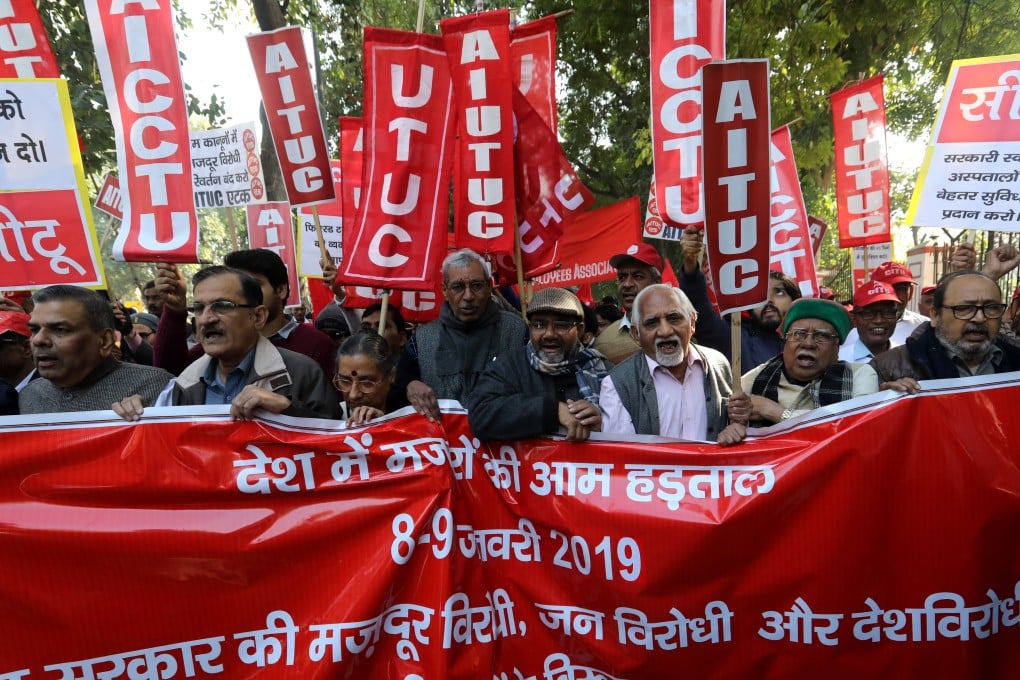Too many protests prevent India from becoming like China or Singapore, says minister. Social media erupts
- Small business minister Giriraj Singh hit by wave of public criticism after suggesting that world’s largest democracy was being held back because it allowed public protests
- Chinese web users question why a democratic politician ‘would make such an undemocratic speech’

An Indian government minister who said the country would not develop as quickly as China or Singapore because it allowed people to protest has been hit by a public backlash.
Giriraj Singh, the junior minister responsible for small enterprises, told an investor summit in Gujarat that those countries did not have places where people were able to “gather to protest against the policies of the government”.
He added: “Neither [Singapore] nor China has a Jantar Mantar” – referring to a popular site for demonstrations in the capital Delhi.
He was responding to an earlier speech by Prasoon Mukherjee, the vice-chairman of the Singapore Indian Chamber of Commerce and Industry, who contrasted Singapore’s GDP of US$70,000 per capita with the figure for India, the world’s largest democracy, which stands at around US$2,000 per head.
But the comments triggered an immediate social media backlash both in India and China.